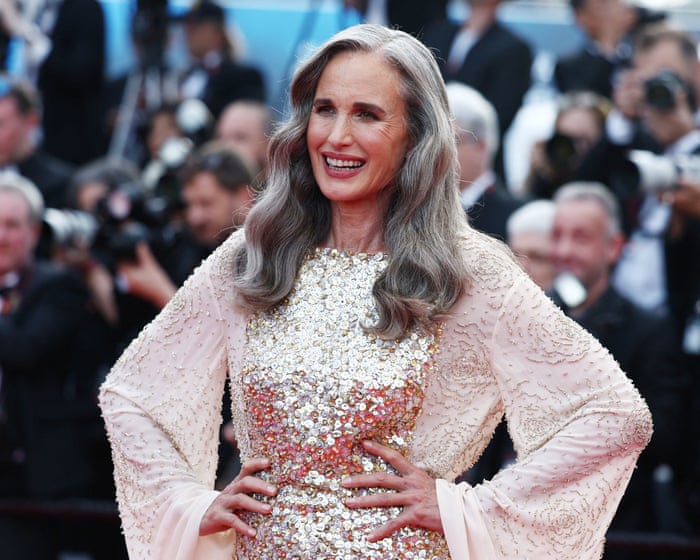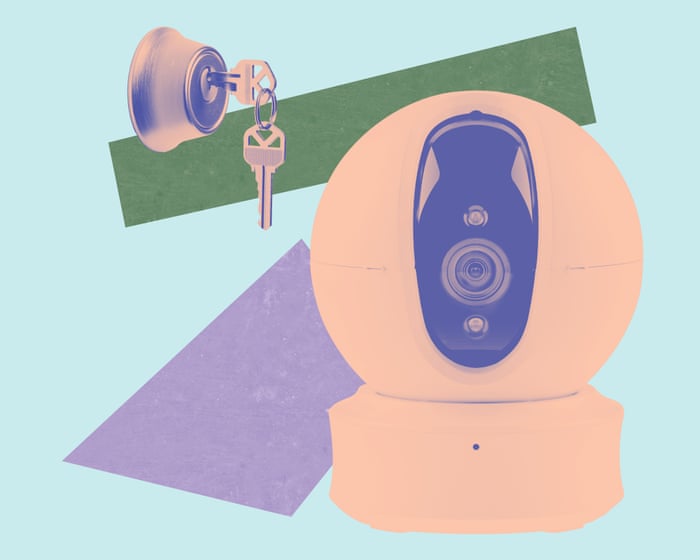There’s a noticeable shift happening where women are embracing their age rather than fighting it. We see this in Pamela Anderson going makeup-free, Andie MacDowell rocking her silver hair with style, or Ashley Judd confidently posting swimsuit photos without worrying about others’ opinions.
While younger generations report feeling less confident about their appearance than they did ten years ago, many older women seem to be moving in the opposite direction—not that they’ve stopped caring about style, but they’re rejecting the pressure to look as young as possible.
This healthier attitude is gaining momentum, with more women openly discussing aging, its challenges, and how to make the most of life without obsessing over beauty. Groups like Silver Sirens, which hosts events for women over 50, champion this mindset. Celebrities like Naomi Watts are talking about perimenopause, influencers are proudly showing off gray hair, and Hollywood is finally celebrating more women over 40.
Of course, society’s messages about aging are still mixed. From fairy tales to beauty ads, we’ve been conditioned to link youth with beauty and aging with decline. Even “anti-aging” products often reinforce the idea that looking younger is better—a narrative that fuels a $624 billion global cosmetics industry.
Younger people, bombarded with flawless social media images, struggle the most with body image. Studies show that 58% of girls aged 15-24 feel negatively about their appearance, and nearly 40% of Australian adults have considered cosmetic surgery.
But change is coming. As we age, many of us naturally shift focus from outward appearance to inner fulfillment. Around midlife, we start valuing meaningful experiences more—what psychologist Laura Carstensen calls the “future time perspective.” This transition isn’t always easy, especially in a culture that equates aging with loss. Yet many older adults feel grateful simply to be alive and healthy.
By this stage, we’ve lived through enough to know what truly matters—and it’s rarely about looking perfect.Many of us have faced serious illness or lost loved ones, which shapes how we view aging—making us grateful for the years we have. While global issues may seem more pressing than worrying about aging looks, I spent nearly seven years studying how we perceive aging, ironically while going through menopause and entering midlife. What I found was one of aging’s best-kept secrets: a growing contentment that lets you care less about many things, including so-called “fading looks.”
Not caring as much isn’t just a way to quiet those nagging insecurities about aging—it crushes them completely, leaving them far behind. That’s the shift from feeling empowered by age to feeling truly liberated by it.
Research even shows a positive bias toward aging that lasts well into later years. Emotionally, women in their 70s are reportedly the happiest group. Now in my 50s, I’m enjoying caring less about how society judges my appearance and more about moving through life with greater balance, calm, and appreciation for this one precious journey of growing older.
Natasha Ginnivan is a psychology and aging researcher, a member of the UNSW Ageing Futures Institute, and writes regularly about age stereotypes, ageism, and how we perceive aging.
FAQS
### **FAQs About Celebrities Embracing Grey Hair**
#### **Beginner Questions**
**1. What is the grey hair movement?**
The grey hair movement encourages women to embrace their natural grey hair instead of dyeing it, promoting self-acceptance and aging gracefully.
**2. Why are celebrities like Andie MacDowell and Pamela Anderson going grey?**
They’re choosing to stop dyeing their hair to challenge beauty standards and show that grey hair can be stylish and empowering.
**3. Is grey hair becoming more popular among older women?**
Yes, many women are now embracing their natural grey hair as a sign of confidence and authenticity.
**4. Does grey hair make women look older?**
It can, but many women feel it makes them look sophisticated and confident rather than just “older.”
**5. How do I know if going grey is right for me?**
Try transitioning gradually or consult a stylist to see how you feel—it’s a personal choice!
—
#### **Intermediate Questions**
**6. What are the benefits of embracing grey hair?**
Saves time and money on dye jobs, reduces chemical exposure, and promotes self-confidence.
**7. How can I transition to grey hair without looking patchy?**
Try highlights, lowlights, or a short haircut to blend the grow-out phase smoothly.
**8. Will grey hair damage my hair?**
No, grey hair is natural, but it can be coarser—use moisturizing products to keep it healthy.
**9. Are there special hair care tips for grey hair?**
Yes! Use purple shampoo to prevent yellowing and hydrating conditioners to combat dryness.
**10. Do men face the same pressure to dye grey hair?**
Generally, no—men are often seen as “distinguished” with grey hair, while women face more stigma.
—
#### **Advanced Questions**
**11. Is the grey hair movement a feminist statement?**
For some, yes—it challenges ageism and beauty standards that pressure women to look youthful.
**12. How do media and fashion industries influence grey hair acceptance?**
With more celebrities and models sporting grey hair, it’s becoming more mainstream and stylish.



